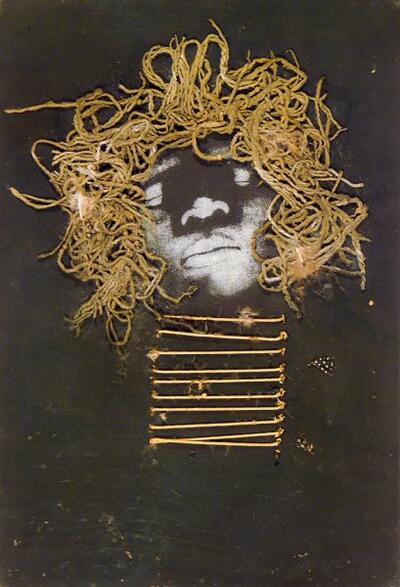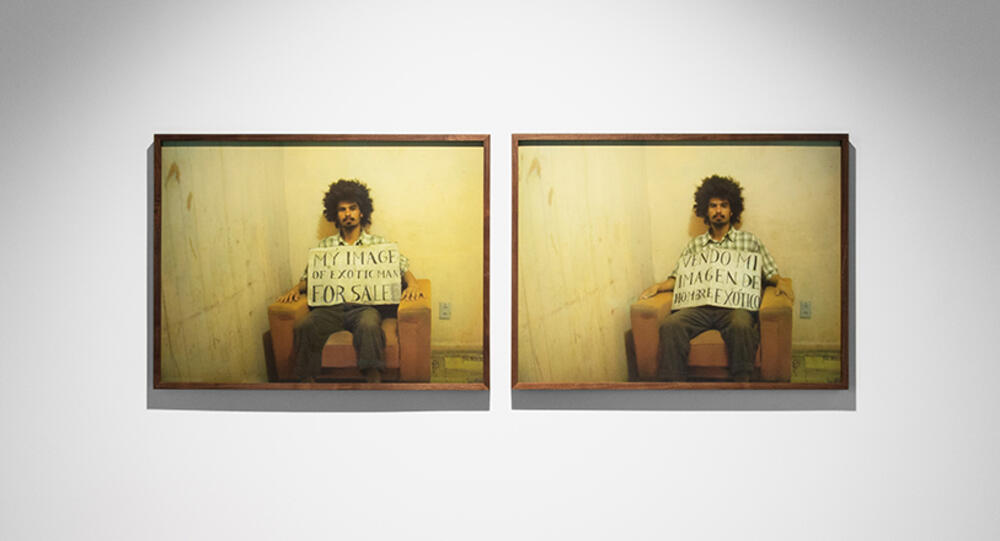Iroko de Bom Jesus
Vidéo performance
4 min. 17 sec.
Paulo Nazareth is an Afro-Brazilian artist whose work—which takes the form of installations, writings, paintings, videos, and performances—addresses the themes of immigration, the effects of globalization, colonialism, identity, and issues of race and racialization. Across the Americas and Africa, the artist follows the routes of migration, on foot or by bus, reporting on social tensions and exhuming parts of the collective memory. Nazareth links his life, his Afro-descendant identity, and his artistic production in his interdisciplinary, participatory practice. He lives in Belo Horizonte, starting point of all the journeys that feed into his work; it is this metaphor of identity that the artist dismantles through his creations, which poetically, sometimes with humor and self-mockery, address the social and political issues specific to so-called“Latin” communities.
On one of his walks, he stumbled upon a small catholic Church overtaken by the roots of a massive iroko tree, in Bom Jesus, in his native Minas Gerais. Iroko is a large hardwood tree originally from West Coast of Africa. It is believed to have healing properties and is related to one of the oldest deities (orishas) worshipped in candomblé, specifically by the Ketu nation of Yoruba origins, in Brazil. In a black and white video, Nazareth poetically addresses the long‑lasting relationship between two very different products of the colonial invasion of Brazil: the violent imposition of a European belief system and the resilience and resignification of the magical proprieties of a West African tree on the other side of the Atlantic
The Pinault Collection first showed this work in 2023 at the Punta della Dogana in Venice, as part of the exhibition Icones.

Photo: Marco Cappelletti e Filippo Rossi © Palazzo Grassi
Vue d’exposition “Icônes”, Punta della Dogana, Venise (Italie), 2023.








